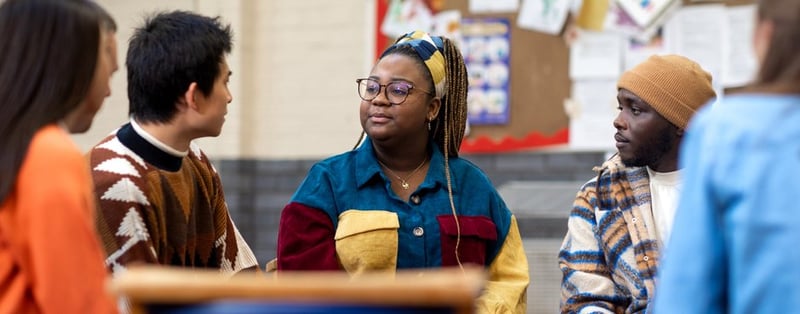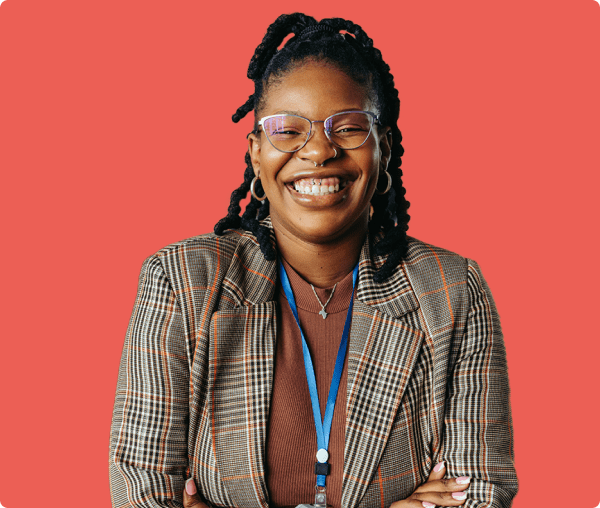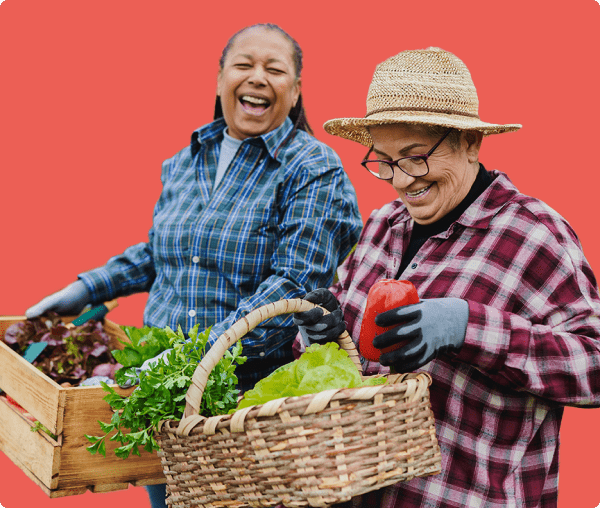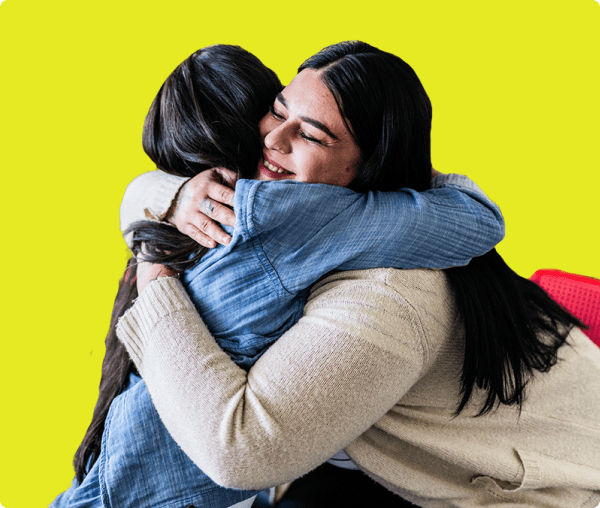Building community with BIPOC leaders

Communities need champions. In Black, Indigenous, and people of color (BIPOC) communities, many turn to nonprofits who recognize their needs.. But what happens when BIPOC leaders are in need of support themselves?
At Catchafire, we believe in adopting capacity building approaches that will actually help. With our suite of resources, BIPOC grantees are given the space to lead and grow their work, and ensure their communities get what they need. Of our nonprofit partners, 61% have BIPOC leadership, with 32% representing Black-led organizations. We’ve also seen that BIPOC-run and serving nonprofits have the greatest gains on our platform.
We wanted to go even further in addressing the unique needs and challenges for BIPOC-led nonprofits. Last year, we launched a BIPOC leadership group to provide a regular forum to support BIPOC leaders.
As part of our leadership group, we host learning sessions, peer conversations (coined “Let’s Talk About It”), and panel discussions to engage fully with the experience of being a BIPOC leader in the nonprofit space. To date, we’ve covered topics such as authentic community engagement, being a founder, board and volunteer management, and succession planning. Some conversations on the docket this summer include the achievability of work-life balance, and the vulnerability it takes to live at the intersection of healing yourself while showing up to lead in triggering spaces. Our sessions are the birthplace of network building and community learning, and our last session was a prime example with no exceptions.
The benefits
Catchafire’s BIPOC leadership group provides regular convenings to help them more easily stand up together by providing coaching, support, and resources to one another. BIPOC grantees receive first-hand knowledge and advice from featured hosts and speakers with extensive nonprofit experience. Members receive coaching and support for organizational needs like strategic planning, marketing strategy, and finance, providing instant takeaways to apply to their organizations. As a result, 87.5% of BIPOC leadership group attendees report an increased confidence in nonprofit leadership skills.
"We are selling the idea of a better community to the powers to be. We are here to make an impact and change the narrative and how our communities are being themed.” – Group member
At the same time, the group provides a consistent space for members to network, share learnings, and solve common challenges. These moments of connection are priceless in an industry where there is an exhausting list of to-dos and community needs to solve for, and it can be isolating for leadership. Members are able to build relationships and inspiration in hearing from one another and sharing experiences.
Many of our group members have shared common reflections on how the space helps them:
"Being a leader in a nonprofit can be very isolating. When a problem occurs, you need to not absorb the problem and put it solely on your shoulders; you will want to work through it with a community of people. Our missions may be different, but our communities are the same. We can all come together, even if we’re in different places, and work on creative innovative solutions together, that’s why this group was created."
"Thank you for this space...it’s amazing to hear from others who I share the same experiences with. I look forward to participating more in the future!"
"Thank you for giving us this space to talk about our needs, challenges, and what we can do. I remember what it is like to be in leadership and it is very lonely and very isolating and there’s very few people we can trust."
Our latest session
June’s leadership group session was about program evaluation. We talked about ways small nonprofits (those with budgets under $250,000) can design their program evaluation process to be more approachable, and shared tips for success in the process. Danielle WJ., Founder and Executive Director of The Oasis Alliance, shared her predicament when it comes to sharing quantitative data for funding opportunities.
The Oasis Alliance designs and installs interior spaces for trauma survivors, including formerly homeless and domestic violence survivors. Her team can only support one family at a time since their work is labor-intensive and specific, which also means that when it comes to sharing their impact, the number of people served is quite small. So, Danielle asked the group for unique ways to present data to advocate for her organization.
Jasmine BJ., Founder of B4 Youth Theatre, jumped in to recommend highlighting the amount of people who reach out to The Oasis Alliance for services, thus highlighting the potential for impact. Presenting statistics about the community they serve will help frame how much more the organization could be doing if they had more funding to scale their operations. Jasmine also encouraged us all to “lead from an honest place” when telling stories of impact, an important reminder to small nonprofits navigating growth and funder appeal.
These kinds of exchanges are invaluable, and help create a community around learning and growth for BIPOC leaders as they work to sustain and advance their nonprofits’ missions.
We continue to expand the resources we offer nonprofits and leaders. During this session, attendees were invited to a soft launch of Catchafire’s new online community space for BIPOC leaders, an intentional space to connect, share resources, and expand leadership knowledge.
Get involved
If you’re a BIPOC-identifying person working in the nonprofit space, and are interested in joining our online community, make a request to join at at catchafire.honeycommb.com.
If you’re a grantmaker, and would like to learn more about ways to support your BIPOC grantees, let’s connect. Email us here.



